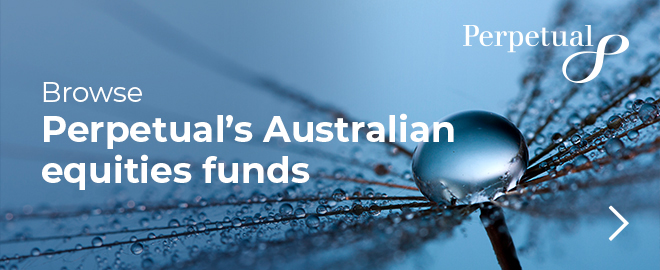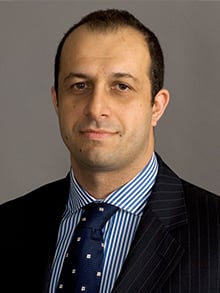Portfolio managers who engage in active ownership can create shareholder value by influencing better board decisions, argues Perpetual’s head of Australian equities, VINCE PEZZULLO
- Active ownership prevents boards from eroding shareholder value
- Early warning signs: investment bankers, outside consultants
- Find out about the Perpetual Strategic Capital Fund
ACTIVE ownership delivers value by holding boards to account and preventing decisions that destroy capital, says Perpetual’s head of Australian equities, Vince Pezzullo.
Passive flows and automated proxy voting give boards too much latitude to pursue growth at any cost.
Active managers fill that gap - engaging early, raising concerns directly, and stepping up when companies stray from shareholder interests.
“If we don’t act like owners, we give boards a blank cheque - and that’s when value gets destroyed,” says Pezzullo, who manages the Perpetual Strategic Capital Fund.
The power of patience
Perpetual’s 60-plus-year track record rests on four quality filters - capable management, recurring earnings, disciplined balance sheets and sensible valuation.
Boards, Pezzullo argues, should apply the same patient approach.
“Rather than chasing the next headline-grabbing deal, boards must wait for moments when value is on offer. That discipline has helped us navigate every market cycle since the 1960s," he says.
Red flags to watch for
Poor capital decisions are often preceded by behavioural signals like the presence of investment bankers or consultants.
Some of the clearest signals that a company is veering off course.
Investment bankers: “You don’t call an investment bank unless you want to do something,” Pezzullo notes.
External consultants: Bringing in third parties to define “best-in-class” often masks preordained agendas.
Active owners spot these early, engage the chairman directly, and push for value-preserving strategies rather than reactive bolt-on deals.
Remuneration matters
When underperformance prompts boards to soften long-term incentives, shareholder interests take a back seat.
In the video above, Vince sits down with journalist Joe Aston for a fireside chat about all things active ownership.
Perpetual won’t hesitate to invoke the ASX’s “second-strike” rule on remuneration.
“It’s a powerful tool. No board wants the stigma of a second strike on its record,” says Pezzullo.
Successful intervention in action
Pezzullo points to a recent win with a company that had lost third of its market value. While the market expected a growth acquisition, Perpetual advocated a controlled run-off:
“Based on our analysis, a run-off could double returns. Thankfully, the chairman listened.”
That outcome underscores how rigorous analysis and the right type of advocacy - in this example, a friendly and professional approach, as well as clear engagement and the willingness to stand firm - can unlock hidden value while many passive owners remain on the sidelines.
This document has been prepared by Perpetual Investment Management Limited (PIML) ABN 18 000 866 535 AFSL 234426. It is general information only and is not intended to provide you with financial advice or take into account your objectives, financial situation or needs. You should consider whether the information is suitable for your circumstances and we recommend that you seek professional advice. The product disclosure statement (PDS) for the Perpetual Strategic Capital Fund (Fund), issued by PIML, should be considered before deciding whether to acquire, dispose, or hold units in the Fund. The PDS and Target Market Determination can be obtained by calling 1800 022 033 or visiting our website www.perpetual.com.au. To the extent permitted by law, no liability is accepted for any loss or damage as a result of any reliance on this information. No company in the Perpetual Group (Perpetual Limited ABN 86 000 431 827 and its subsidiaries) guarantees the performance of any fund or the return of an investor’s capital. All investing involves risk including the possible loss of principal.


